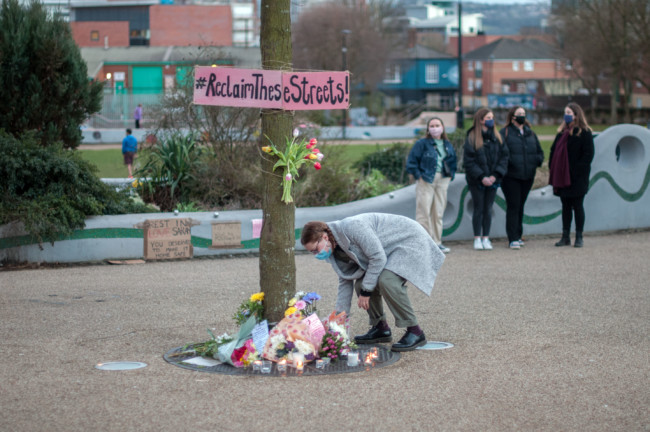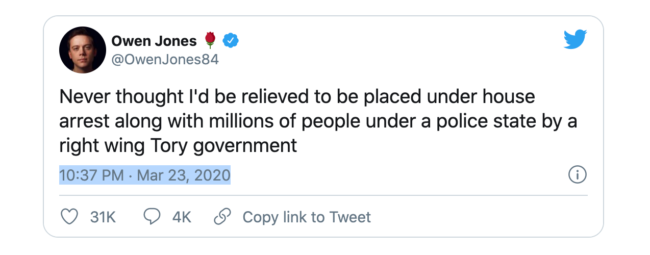Was Piers Corbyn at the Sarah Everard vigil – and other ‘scandals’?

Shami Chakrabarti has a question, which is most likely rhetorical but might not be: “After the Sarah Everard vigil scandal, who still thinks the police need extra powers?” Guardian readers, to whom the question is addressed, who support the idea of police having more powers to target “unwitting racism“, hate crime and lockdown might well answer “yes”.

But Chakrabarti thinks the answer must be “no”. Sarah Everard went missing on a walk home from a friend’s house on 3 March. Her body was found in Kent. Metropolitan Police officer Wayne Couzens, 48, has been charged with her kidnap and murder. That the victim of heinous crime should now be linked to a “scandal” is hugely regrettable. A friend of Ms Everard’s writes:
Since we learned of Sarah’s disappearance, this experience has been hard to put into words. It’s not something anyone would ever imagine having to deal with. But now, as brutal as the outcome is, we have some answers. It’s shocking and devastating. But I would rather know than never find out what happened to her, so we can begin the long, painful grieving process.
When I first heard of the vigil for Sarah on Clapham Common I was looking forward to attending – it felt good to be able to ‘do something’ and express my love for Sarah and my sorrow for what has happened to her. Less than a day later, I decided not to attend, as have many of her friends. I can’t speak for all of them, but my reason for not attending is this: my friend’s tragic death has been hijacked. It is not a tribute to her any more, it’s about something else – and I don’t like what it has become.
And so to the “scandal” in which heavy-handed policing broke up a vigil for Sarah on London’s Clapham Common. Officers handcuffed women and removed them from the gathering – much as they did when Piers Corbyn, the OAP brother of former Labour leader and Chakrabarti pal Jeremy Corbyn was treated he refused to leave an anti-lockdown protest in Hyde Park, London, on 16 May. He was later found guilty of breaching coronavirus restrictions. So much for the rules. Here’s how Chakrabarti begins her article:
The Peterloo massacre in 1819, the abuses of the suffragettes in the early 20th century, the killing of Blair Peach in 1979, the recent “spy cops” scandal: there have been many dark moments in Britain’s history of policing and protest. To this long list we must now add the scandalous police response to a public vigil held on Clapham Common, south London, marking the disappearance and death of Sarah Everard.
No mention of Corbyn.
Do the rules only matter only if you agree with the cause people are gathering for? Without irony, Chakrabarti continues:
When XR [Extinction Rebellion] blocked access to three printing presses owned by Rupert Murdoch in September, accusing newspapers of failing to report on the climate crisis, many politicians and commentators fell over one another to side with Murdoch over the climate protesters. Those who didn’t care about defending protesters’ rights when they were considered too green, or too black, have now woken up to find that a vigil for Sarah Everard has been broken up with a callous police response.
Too green, too black, too Murdoch?
If you cheered for lockdown and cheered again when the unlovely Corbyn was pinched, complaining about the lockdown rules now looks less about a demand for freedom for all and more about freedom for your own beliefs and causes.
Lead Image: Tim Dennell -A woman lays flowers at a vigil for Sarah Everard in Sheffield, UK. CC BY 2.0.
Posted: 17th, March 2021 | In: Key Posts, News Comment | TrackBack | Permalink


